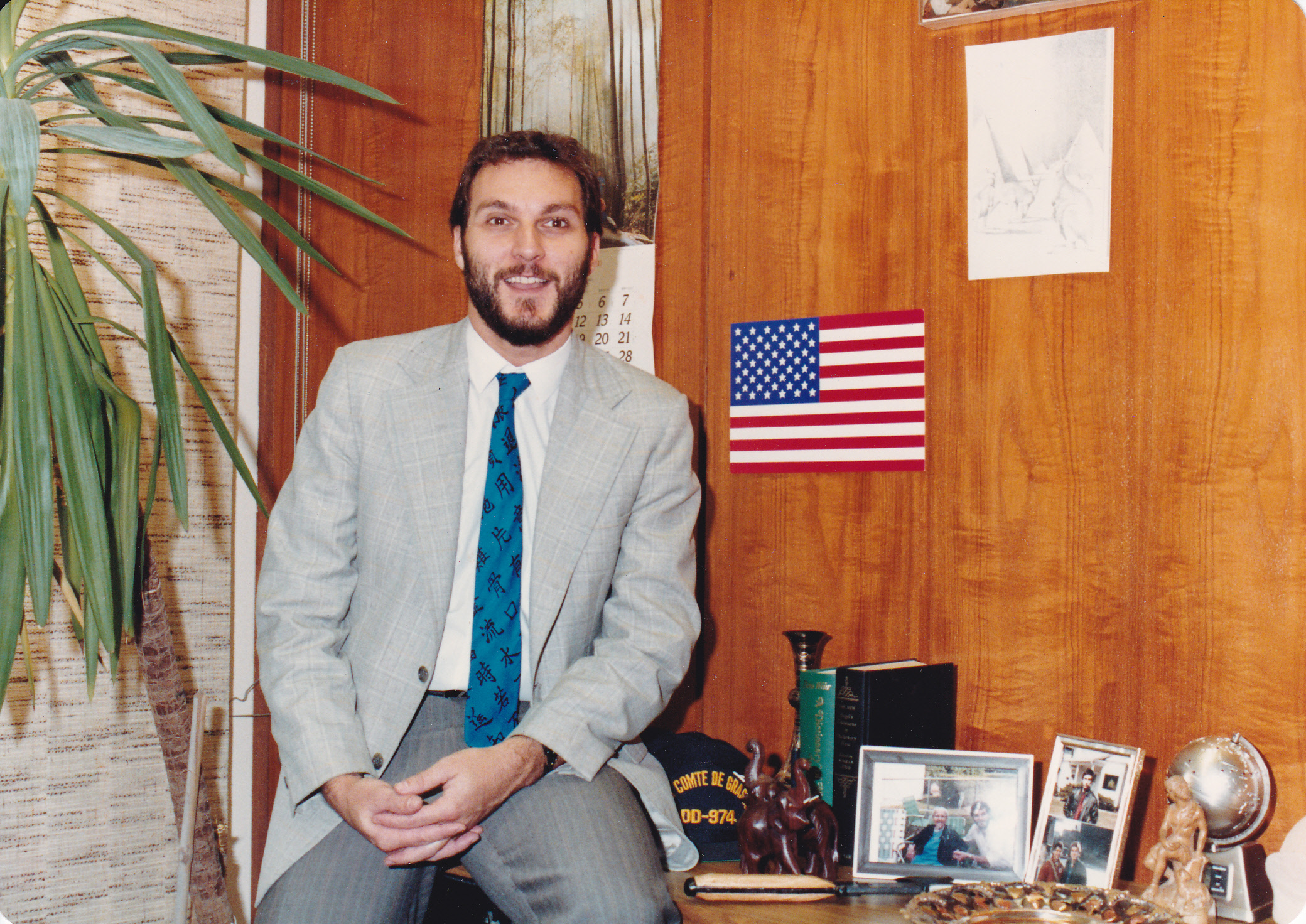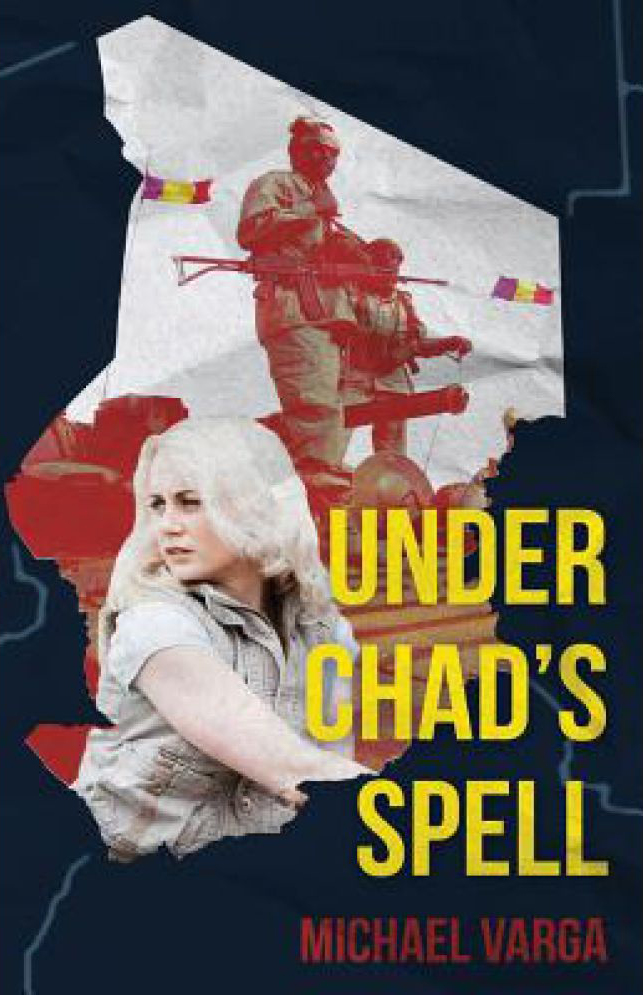

by michael varga
Under Chad’s Spell
Charlene is assigned to Moundou, Chad’s third largest city, where she immerses herself in her teaching. She is horrified by
certain Chadian customs, particularly their treatment of women, who are often considered lesser than any man. Her ex-lover Madison has a far different experience in the country. He is posted to the small remote village of Baibokoum, where he comes to know Chadians in a much more intimate way, engaging in tribal rituals and living with a Chadian wife.
As the months pass, both Charlene and Madison struggle with the uncertainties of being young Americans in Chad during a
time when the government is under attack by rebels. They each fantasize that they will be reunited once they finish their tour in Chad and return to America.
Civil war breaks out, and the American ambassador orders all Americans to evacuate. Charlene is baffled when Madison fails to show up. All Americans are gathering in Chad’s major cities
to flee the country and Madison is a no-show. Where is he?
Why isn’t he here for the departure?
As the war worsens and the Americans load up a convoy of
trucks to escape into neighboring Cameroon, Charlene has to
decide if she can do anything to save the missing Madison
before it’s too late.
Reviews for “Under Chad’s Spell”
Lynda Fitzgerald
UNDER CHAD’S SPELL is the fascinating story about a group of Peace Corps Volunteers who are seeking adventure in faraway Chad, Africa. And they get more than they bargained for.
Two volunteers, Charlene and Madison, go completely different routes in Chad. Charlene is stationed in the city, where she enjoys at least some of the creature comforts she’s used to. There she satisfies herself with teaching English to the “city natives.” Madison, however, is stationed in a remote village. Despite the hardships, he throws himself into the Chadian lifestyle, experiencing native life with the villagers. He teaches them English, but they teach him much more.
Then civil war breaks out, and the volunteers’ lives are in grave danger.
Michael Varga gives us an education in Chadian life without ever seeming to teach. He brings alive not just the characters Madison and Charlene, but the natives of Chad. This is a book that will appeal to a broad readership because there’s something in it for everyone.
I highly recommend this book to readers.
Lynda Fitzgerald LIVE Series: LIVE Ringer, LIVE Ammo, and Now Available, LIVE in Person Other books on http://www.fitzgeraldwrites.com
John Kennedy
Under Chad’s Spell is a fine book. I enjoyed reading it from start to finish. It’s an easy read. Michael Varga’s story kept me entertained on many levels. I recommend this book to all over the age of eighteen. Read this book and you will know more about Chad, the people of Chad, and the experience of being a Peace Corps Volunteer in Chad. I also believe that if you are open to exploring the possibilities of how your life might have been different if you had been a PCV in Chad, you will learn something about yourself, your past and possible future by reading this book. That’s a heavy burden to place on a book, but for me, Under Chad’s Spell did provide all of that.
When looking for a map of Chad online, I happened on a Lonely Planet website that has this to say about traveling in Chad: Wave good-bye to your comfort zone and say hello to Chad. Put simply, Chad is a place and experience you’ll never forget! If Ghana and Gambia are Africa for beginners, Chad is Africa for the hardcore.
Maybe the same could be said of being a Peace Corps Volunteer— Ghana and Gambia, good for the “beginner” PCV; Chad suitable only for the hard core.
But that’s too simplistic. Every Volunteer experience is unique in its difficulties and its rewards, and Mr. Varga’s protagonists, Madison and Charlene, are not typical volunteers even in Chad of the 1970s.
The story begins with in-country Peace Corps training in Chad, a startling and sometimes painful experience for the trainees in different ways. When Peace Corps switched from training at American universities to in-country training I was in my third year of service in Ghana and I watched the trainees come into Ghana fresh from the colleges and streets of the U.S., and wondered if this was a research- based change for the agency—or at least one carefully considered. I remember how important the information provided to my training group by returned Volunteers and Ghanaian U.S. college students concerning customs of Ghana was in preparing us to work in Ghana. No one in our group got a scalded hand because of inappropriate hand signals. (Years later I did happen to talk with someone who knew the reason for the change to in-country training—it’s cheaper to train in Chad or Ghana than it is at an American university.)
After training, Madison is assigned alone, to Baibokoum, a remote village in the south of Chad, to teach English in a secondary school. He doesn’t exactly prosper, but he survives and immerses himself in Chadian life and culture. His experiences are unique to his location and personality. His life improves or goes downhill, depending, I think, on the reader’s point of view. (I really couldn’t decide.) Then, because of an insurgency in the capital that has led to the termination of Peace Corps programs in Chad, he has to make a snap decision on whether to leave the village or stay and continue his work and life on his own. The story ends with Madison ruminating on his decision. Many of us have had similar thoughts when leaving our country of service even under less difficult circumstances.
I asked my wife, who was also a Ghana PCV, if we knew anyone who had been a Volunteer in Chad. We did. He was one of those well-digger Volunteers that Madison confides in a letter to Charlene that he envies. Our friend served in the nineties. (Yes, Peace Corps returned to Chad in calmer times.) The Volunteer we knew stayed in Chad for three years and has worked in refugee camps in various parts of the world, including Chad. The last time we heard of him he couldn’t stand returning to the U.S. for more than a few weeks at a time. In the modified words of a Kingston Trio song, “Did he ever return, no he never returned, and his fate is still unlearned.” So maybe there is something about Chad even without an abrupt exit.
In Ghana we were sometimes called Peace Corps with the “ps” in Corps pronounced. Perhaps some clever lyrics writer after reading Under Chad’s Spell will change the words of “Mamas, Don’t Let Your Babies Grow Up To Be Cowboys” to “Mamas, Don’t Let Your Babies Grow Up To Be Peace Corps Volunteers.” I don’t think the song—or the book—will become recruiting tools for the Peace Corps, but I really did enjoy reading it and thinking about Michael Varga’s story of Madison and Charlene.
Reviewer John Kennedy is the author of Last Lorry to Mbordo:
Misadventures in Nation Building. He lives in Easton, Pa. and can be contacted at calkennedy@yahoo.com
– – Review on Amazon
My Writing Blog
Follow Along
Get That Man a Chair
After a stint in the 1970s in the Peace Corps in Chad, Michael Varga became a Foreign Service officer, serving in Dubai, Damascus, Casablanca, and Toronto. He served as the desk officer for Lebanon and was a Pearson Fellow at the World Trade Center in Miami. He is a...
Punching at Destiny: The Uneven Path Forward
When I was a sophomore in high school, I was cast in a production of the musical play, Guys & Dolls. I was Gambler #3 and I had only one line to deliver. During a game of craps, I was supposed to get into a tussle with Gambler #6, yell “You cheated!” and slug him. When we rehearsed the play, I was confident I could make it look like my fist was making contact with his face. The director had said that I was supposed to swing my arm as if to hit his face but position my back so that the audience wouldn’t see my hand sliding just beyond his right cheek.
Improbably Grateful
In 1995 the doctors told me I would probably be dead of AIDS by April 1997. I had retired early from the U.S. Foreign Service, and AIDS patients were dying rapidly. There was no effective treatment for AIDS or HIV. It was a grim time, and I had no reason to think I would be any different than the hordes of patients who had already succumbed, who were deprived of a normal life span and the opportunity to grow old.

